The build-up to the annual Boat Race contested by Oxford and Cambridge Universities is currently shrouded by fears over E.coli as a result of Thames River water quality.
The Boat Race is one of British sport’s oldest traditions, with the first competition dating all the way back to 1829, with Cambridge University winning 87 times in the men’s race and 47 in the women’s since its inception.
Water-quality testing from environmental charity River Action has determined that bacteria levels in the London waterway are almost three times below the Government’s safety standards.
It harkens back to last summer’s Olympics in Paris, where the Seine’s water quality dominated the narrative, with alarming E. coli levels seeing the river branded ‘unsafe’ for competition just months out from the Games.
Several athletes became ill after exposure to the water in Paris, with two Triathletes having to withdraw from competition before being taken to hospital, and another two Portuguese athletes complaining of gastrointestinal issues.
Now, concerns appear to be rising ahead of this month’s Boat Race over a similar issue, with alarming levels of Escherichia coli (E. coli) bacteria found in the four-mile course, which stretches between Putney and Mortlake in southwest London.
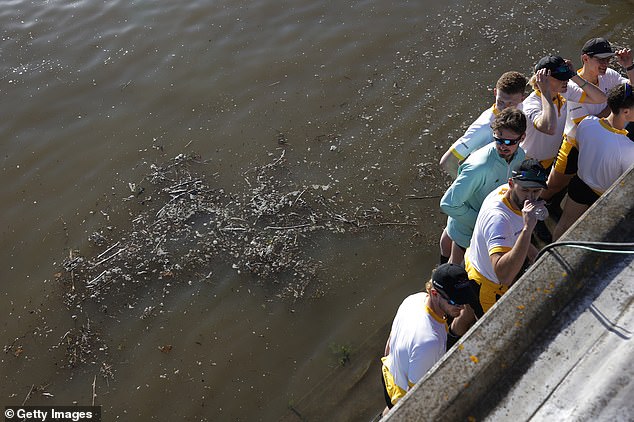
Concerns have risen over the quality of the water in the River Thames ahead of the Boat Race
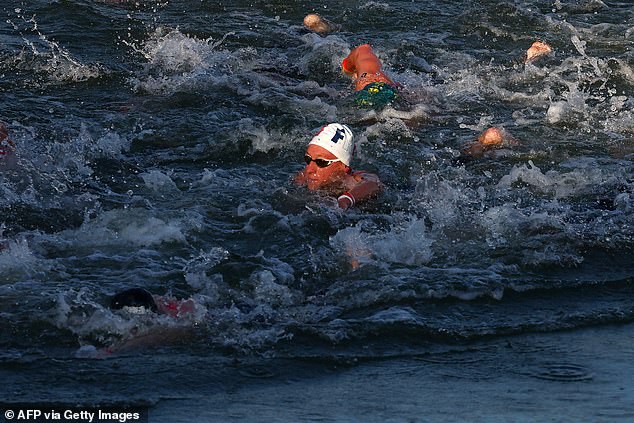
There were similar concerns for open water racing events at the Olympics last summer in Paris
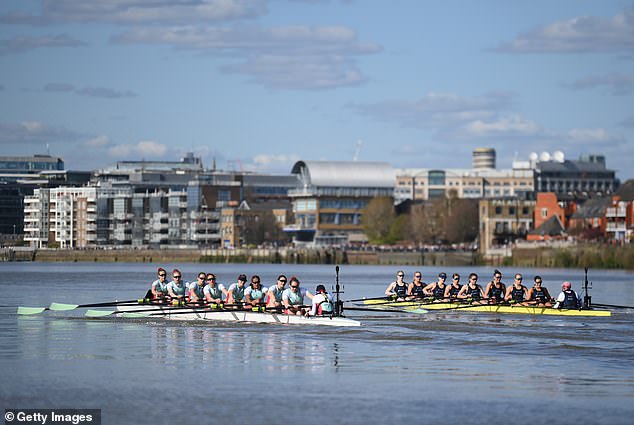
The Cambridge University Boat team are the reigning champions of both the men’s and women’s races
As such, ahead of the 170th men’s and 79th women’s edition, organisers have encouraged participants to wear footwear, cover any blisters and stay out of the river in adherence to British Rowing’s guidance for poor water quality.
The Boat Race said in a statement: ‘Water quality is an ongoing concern for the Boat Race.
‘We have put in place a series of precautionary measures this year to protect the health of our athletes.
‘Which includes guidance regarding the covering up of open wounds, regular handwashing, a cleansing station at the finish area and highlighting the risks of entering the water.’
The rowers would put themselves at risk of serious illnesses by consuming E. coli germs — which are found in faeces — with cystitis, urinary tract infections (UTIs), vomiting and intestinal infections all originating from the bacteria.
In some rare cases, consuming E. coli can lead to life-threatening blood poisoning.
Three members from the University of Oxford’s 2024 team suffered from stomach bugs in the build-up to last year’s race, although it could not be determined whether their illnesses were caused by pollution in the River Thames.
Sir Steve Redgrave has raised concerns over the water quality in the River Thames ahead of the 2025 Boat Race on Sunday, admitting it is a ‘real worry’.
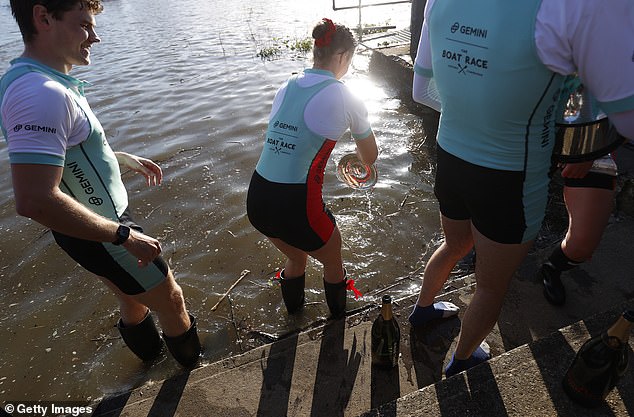
The race organisers have called for rowers to cover up any open wounds after taking preventative measures
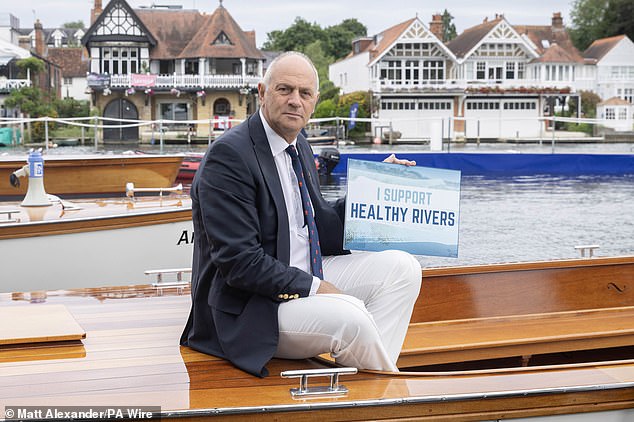
Sir Steve Redgrave is calling for action to clean up the River Thames ahead of the Boat Race
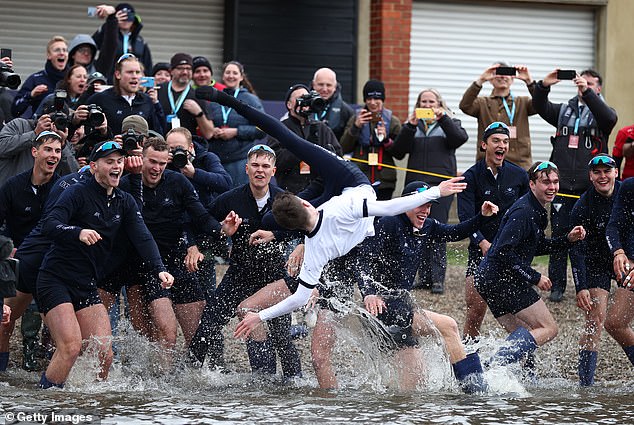
Rowers will likely be forbidden from the tradition of throwing the winning coxes into the river
With just days before the annual race between the universities of Oxford and Cambridge, Olympics rowing legend Redgrave has pleaded with organisers to take action.
‘It’s a real worry that in 2025, unsafe water quality in the Thames is still a concern,’ the former rower, who won gold medals at five consecutive Olympic Games between 1984 and 2000, urged.
‘Rowers, river users, and the public deserve better.’
Organisers had hoped that the new Tideway Tunnel, which was first worked on in 2016 and became operational earlier this year, would drastically improve the river’s water quality.
The Tideway Tunnel is a deep-level sewer running 25km from Acton to Lee Tunnel near Stratford.
Rowers will likely be forbidden from the tradition of throwing the winning coxes into the river as a result of fears over water quality.
A Thames swimming race was cancelled in May over fears of potential sickness as a result of the water. The race had been held for more than 120 years.







